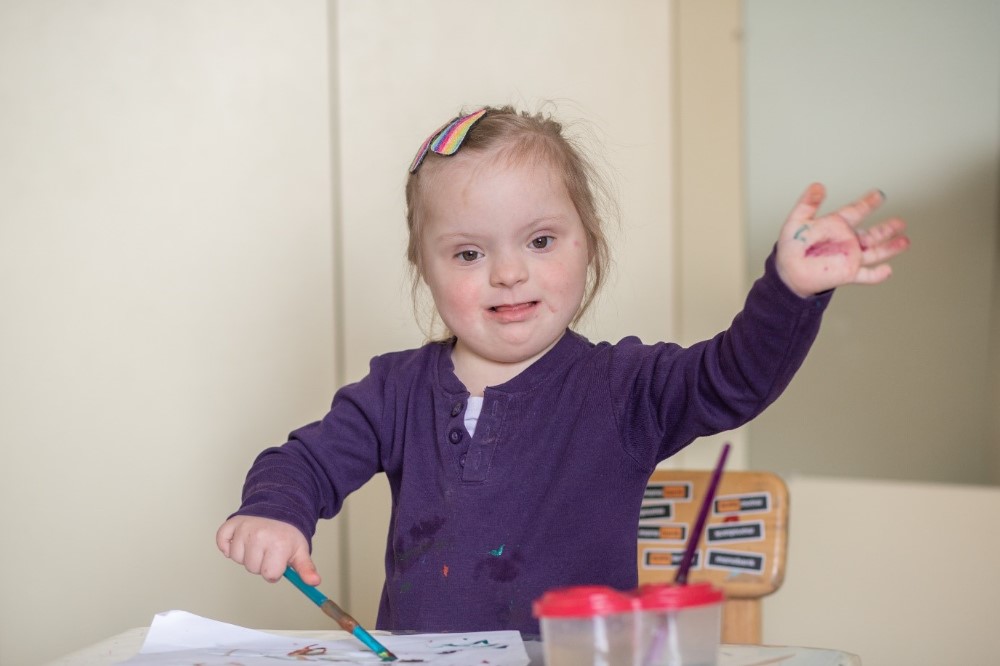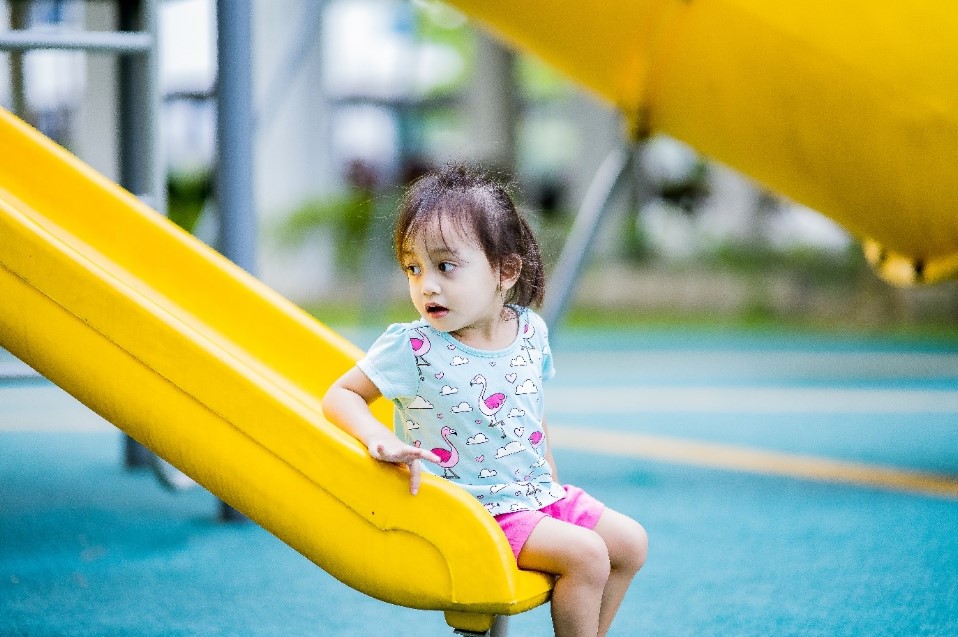How Children’s Physiotherapy Can Improve
Developmental Delays
If you have a child with developmental delay, physiotherapy will often play an important role in supporting them to gain independence and reach their full potential. Our guide explains what you need to know about physiotherapy for developmental delays, including the global developmental delay definition, what causes it, and how paediatric physiotherapy can help children reach their goals.
What is Global Developmental Delay?
Children who are developing typically achieve certain milestones at around the same time as their peers. They also reach these milestones in a specific order over time. For example, they learn to babble before they learn to talk.
If your child has developmental delay, it means they are taking longer to reach these developmental milestones than other children. Developmental delay may affect one area of development, such as speech, social or motor (movement) skills.

Sometimes, developmental delays have a significant effect on several aspects of a child’s development. In children younger than five years of age, global developmental delay is defined as a delay in two or more developmental areas:
- gross/fine motor skills
- speech/language
- cognition
- personal/social
- activities of daily living[i].
Developmental delays are common in early childhood, affecting around 10%–15% of preschool children, with global developmental delays occurring in 1%–3% of children this age[ii].
Developmental delay in children can be difficult to recognise because all children develop at different rates. A child who is developmentally delayed may ‘recover’ and catch up with their peers. In other children, early developmental delay can be the first indicator of disability or longer-term challenges.
Global developmental delay causes
Causes of developmental delay include genetic and environmental factors[iii].
Genetic
Developmental delay can occur in children who are born with some genetic syndromes, including:
- Down syndrome
- Fragile X syndrome
- Prader-Willi syndrome
- Angelman syndrome.
Environmental
A wide range of environmental factors can lead to developmental delays. These include:
- infections or exposure to toxins in the womb
- premature birth
- birth trauma (which can lead to conditions such as cerebral palsy)
- infections or illnesses after birth
- head trauma in early childhood
- malnutrition.
In many children with a developmental delay, no specific cause can be identified.
Global Developmental Delay Motor Symptoms
Motor development refers to a child’s ability to use their muscles and move around. Typically developing children reach motor development milestones in a specific order within certain timeframes. If children take longer than expected to achieve these milestones, it could indicate they have a delay in the area of motor development. This may involve development of:
Gross motor skills – gross motor delays affect big muscles in the legs, arms or trunk, leading to difficulties with activities like rolling, sitting, crawling and walking.
Fine motor skills – fine motor delays affect small muscles, like those in the hands, which leads to difficulties with tasks such as handwriting, tying shoelaces and grasping objects.
Other signs of motor delay
Children with a motor developmental delay might also have:
- stiffness in their arms, legs or trunk
- low muscle tone (‘floppiness’) compared to children of a similar age
- difficulty using one side of their body
- clumsy or poorly coordinated movement
- balance problems.

The symptoms of developmental delay can affect a child’s ability to participate in their families, communities, and educational settings. Early childhood early intervention aims to provide support as soon as possible, so children with developmental delay have the strongest chance of achieving the best possible outcomes.
Developmental delay physiotherapy management: an overview
As university-qualified allied health professionals, physiotherapists have extensive training in movement and function. This includes substantial training in how bones, muscles, and the nervous system develop, and what can cause developmental delays in children.
For children with developmental delays, physiotherapy aims to help children achieve goals such as greater independence, quality of life, and ability to participate at home, in early childhood education, and in leisure and community activities.
Paediatric physiotherapists use a range of techniques and therapeutic supports designed to:
increase muscle strength and flexibility
improve joint range of movement
encourage normal movement patterns
help children keep up with their peers
support achievement of movement milestones
improve balance, posture and coordination
promote independence with daily living activities
Ideally, pediatric physiotherapy for developmental delay should start as early as possible. This is because young children’s growing brains and bodies are highly responsive to their environment. Early intervention harnesses the potential of this responsiveness to support optimal growth and development.
The NDIS early childhood approach recognises how important it is for children with developmental delay to access early intervention support services. For this reason, your child doesn’t need to have a formal diagnosis of developmental delay or disability to access support if they are younger than six.
How paediatric physiotherapy can help a child with developmental delay
Motor developmental delay can have a wide range of consequences, so physiotherapy for children with developmental delay involves various techniques and strategies. Physiotherapists prescribe programs tailored to the needs and goals of each child and their family/caregivers. Your physiotherapist will help your child work towards their goals using recognised, evidence-based therapies.
Examples of physiotherapy treatment for developmental delay include:
Strength training
- stand up, walk or run
- sit up in a chair
- maintain their balance
- play a sport
- hold a pencil and write
- grasp objects, such as a cup or their toothbrush.
Motor skill training
Your physio might prescribe exercises or apply techniques designed to help your child achieve movement milestones, such as the ability to sit, crawl, stand and walk.
Balance training
For example, they might practise:
- balancing on one leg
- shifting their weight from one foot to the other
- maintaining their balance while performing different movements, such as kicking or walking heel to toe.
Flexibility exercises
Proprioceptive training
This involves training to help your child recognise where their body is in space, both at rest and while they are moving.
Movement and co-ordination training
Some children with developmental delays have difficulties with specific movement patterns. For example, they may find it hard to move their opposite arm and leg or turn their head or trunk. Physiotherapy can support children to develop better patterns of movement and to co-ordinate movement of different body parts. This can help with everyday activities as well as those that require higher levels of co-ordination, such as sports.
Assistive technologies
Physios may be involved in prescribing assistive devices to support your child’s independence and ability to participate in things that are important to them. For example, they might need a specific type of seat or cushion to help them sit upright at school. Or they may need to use a wheelchair to access their school or community or to participate in sports or hobbies.
Training support people
- completing a home exercise program
- play-based movement activities
- gaining independence with everyday activities
- using assistive devices.
Children’s Physiotherapy with Active Ability
If your child has a developmental delay, our paediatric physiotherapists provide high quality support to help them reach their potential. We use strategies that are backed by research and are also fun, to help children engage with their therapy and achieve the best possible outcomes.
We also have paediatric dietitians who can support your child with issues such as fussy eating, poor appetite, mealtime challenges, failure to thrive, and food allergies and intolerances.
Our team can visit you in your preferred environment, whether that’s at home, childcare, or another convenient local facility.
At Active Ability, we do not charge for travel or have a waiting list, so you can start therapy when you’re ready and get great value from your NDIS funding.
To learn more about how we might be able to support your child and family, get in touch with our friendly team on (02) 9161 5887, hello@activeability.com.au or via our contact form.

REFERENCES:
[i] – Indian Journal of Medical Research. Approach to the diagnosis of developmental delay – The changing scenario. https://www.ncbi.nlm.nih.gov/pmc/articles/PMC6441684/. Accessed online 4.4.2023.
[ii] -Singapore Medical Journal. Developmental delay: identification and management at primary care level. https://www.ncbi.nlm.nih.gov/pmc/articles/PMC7843894/. Accessed online 4.4.2023.
[iii] – Stat Pearls [Internet]. Developmental delay. https://www.mdpi.com/2076-3417/11/12/5665/htm. Accessed online 7.12.2022.